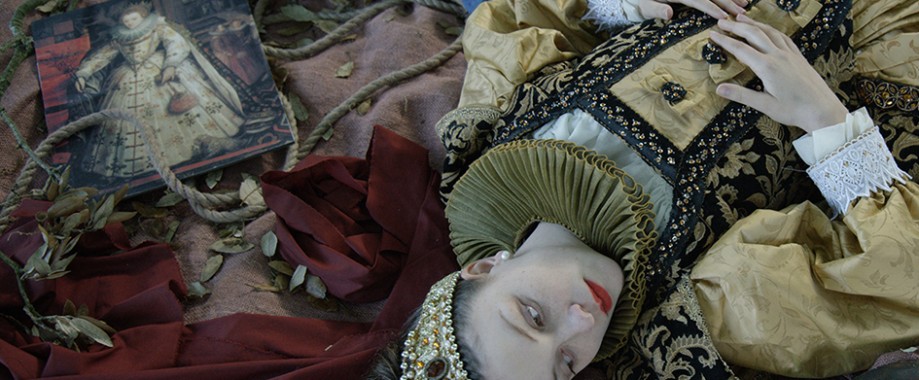
We are pleased to announce that Tropikos, John Akomfrah’s stunning RTP film commission, has been acquired by the Arts Council Collection to mark its 70th anniversary.
Described by Mark Brown, in The Guardian (15 January 2016), as “an experimental 16th-century costume drama filmed on the banks of the river Tamar … exploring the relationship
between waterways in south-west England and the slave trade”, Tropikos transforms the landscape along the Tamar Valley into the setting for a sixteenth-century port of exploration on the African continent in order to reveal the deep-rooted and darker history of the river.
Informed by historical accounts of the slave traders based in Plymouth, whilst also referencing classic literature, specifically Milton’s Paradise Lost (1667) and Shakespeare’s The Tempest (1611), the film is a fictional narrative, re-imagining some of the first “encounters with the other”, as Akomfrah puts it, in a period when Britain’s position as a global, seafaring power coincided with the enforced displacement of millions of African people across the Atlantic. Employing the tactics of Bertolt Brecht’s ‘theatre of alienation’, the artist presents a series of ‘tableaux vivantes’, which feel both archaic and imaginary, yet whose startling juxtapositions disrupt a simple identification with the characters depicted, demanding a conscious consideration of the constructed narrative. African and European locations blur, and characters and goods overlap with each other, as a representation of the faded traces of stories that we are asked to re-think afresh.
John Akomfrah (born 1957, Accra, Ghana) is an artist and filmmaker, based in London, whose works are characterised by their investigations into memory, post-colonialism, temporality and aesthetics, often exploring the experience of the African diaspora in Europe and the USA. Akomfrah was a founding member of the influential Black Audio Film Collective, in 1982, along with the artists David Lawson and Lina Gopaul (amongst others), with whom he still collaborates today, as Smoking Dogs Films.
On the 15th January 2016 the Arts Council Collection announced that Tropikos was one of eight new commissions acquired by the collection in order to celebrate it’s 70th anniversary. The commissions, also including works by Hurvin Anderson, Marvin Gaye Chetwynd, Ryan Gander, Mark Leckey, Heather Phillipson, Keith Piper and Katie Paterson, will all go on display in 2016 before joining the collection.
Tropikos (2014) – directed by John Akomfrah, and produced by Smoking Dogs Films (Lina Gopaul and David Lawson) – was commissioned by the River Tamar Project, and premiered at Devonport Guildhall in October 2014, as part of the It’s All About the River film festival. The commission was made possible with support from Plymouth University and Arts Council England, with kind contributions from the Elephant Trust and the George Melhuish Bequest and Smoking Dogs.
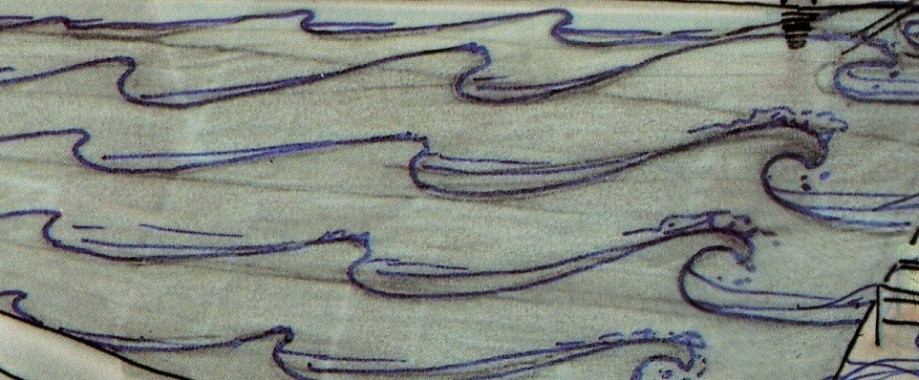
Artist, musicians, and writers have responded to the context of the River Tamar and have been part of its energy for centuries and, like all places, the resulting artworks become a record of its history. This history is important to the River Tamar Project as we can draw direct parallels to the intentions of our project and why art is important at moments of environmental and cultural shifts.
The results of this relationship between artist and riverscape are artworks that resonate with the area and its socio-economic and cultural history, as well as exploring universal issues. For instance, the celebrated British landscape JMW Turner who painted countless seascapes and river scenes was drawn to the Tamar Valley several times, notably around 1813-15. The significance of his work captured a period of industrial revolution, which led to a national reputation for Plymouth. Also, for our project now, his work presents the physical change of the coast and riverside, and identifies the infrastructure and design of this period.
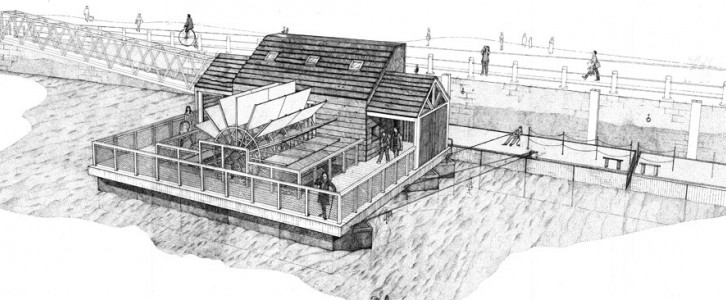
About Flow
by Owl Project and Ed Carter
Electro-acoustic musical machinery powered by the River Tyne
Flow is a tidemill – a floating building on the River Tyne that generates its own power using a tidal waterwheel. The onboard instruments respond to the constantly changing environment of the river, generating sound and data.
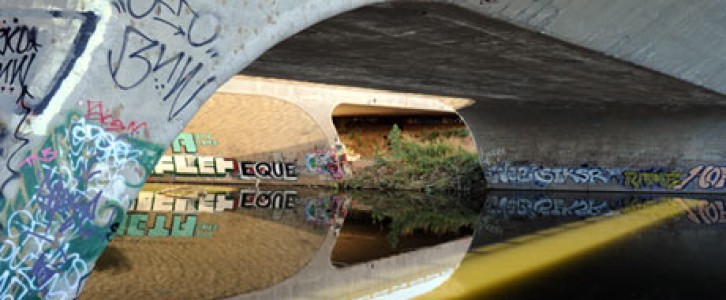
A fantastic article – LA’s concrete storm drains conceal a living, breathing waterway that has rarely been explored – until now by Rory Carroll in yesterday’s Guardian newspaper.
http://www.guardian.co.uk/world/2012/aug/27/los-angeles-river-storm-drains
A scorching morning in the San Fernando valley and I am driving up and down Balboa Boulevard, parks and fields either side of the motorway, lost. The talking GPS on my dashboard has lapsed into silence, defeated by an arcane destination with no zip code. I spy a park attendant emptying a bin and pull over to ask directions. He eyes me, baffled. I wonder if he is deaf and repeat the question. He still looks confused. “Did you say river?” Yes, I reply. Where is the river? He shakes his head. “What river?”
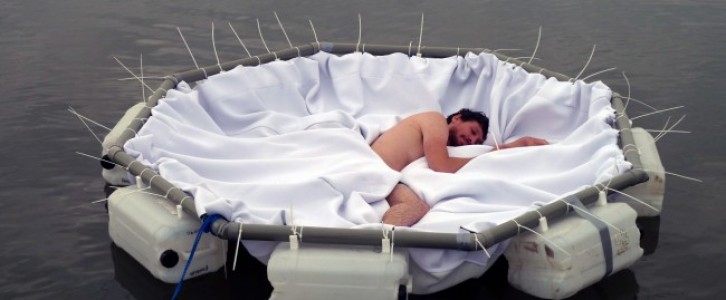
River Runs – they certainly do – an amazing artists project.
Just missed this at Modern Art Oxford
URBONAS STUDIO: NOMEDA & GEDIMINAS URBONAS, TRACEY WARR, GIACOMO CASTAGNOLA
This month we welcome Nomeda & Gediminas Urbonas for a three-week artist residency in the Project Space. Nomeda and Gediminas are working with writer Tracey Warr and architect Giacomo Castagnola to turn the Project Space into a temporary River Research Centre.
The artists will invite visitors to explore the role that rivers play in defining our sense of individual and collective belonging, how we might imitate water birds, animals, plants and fish to adapt to an environment with rising water levels, and why and how water is important to us.